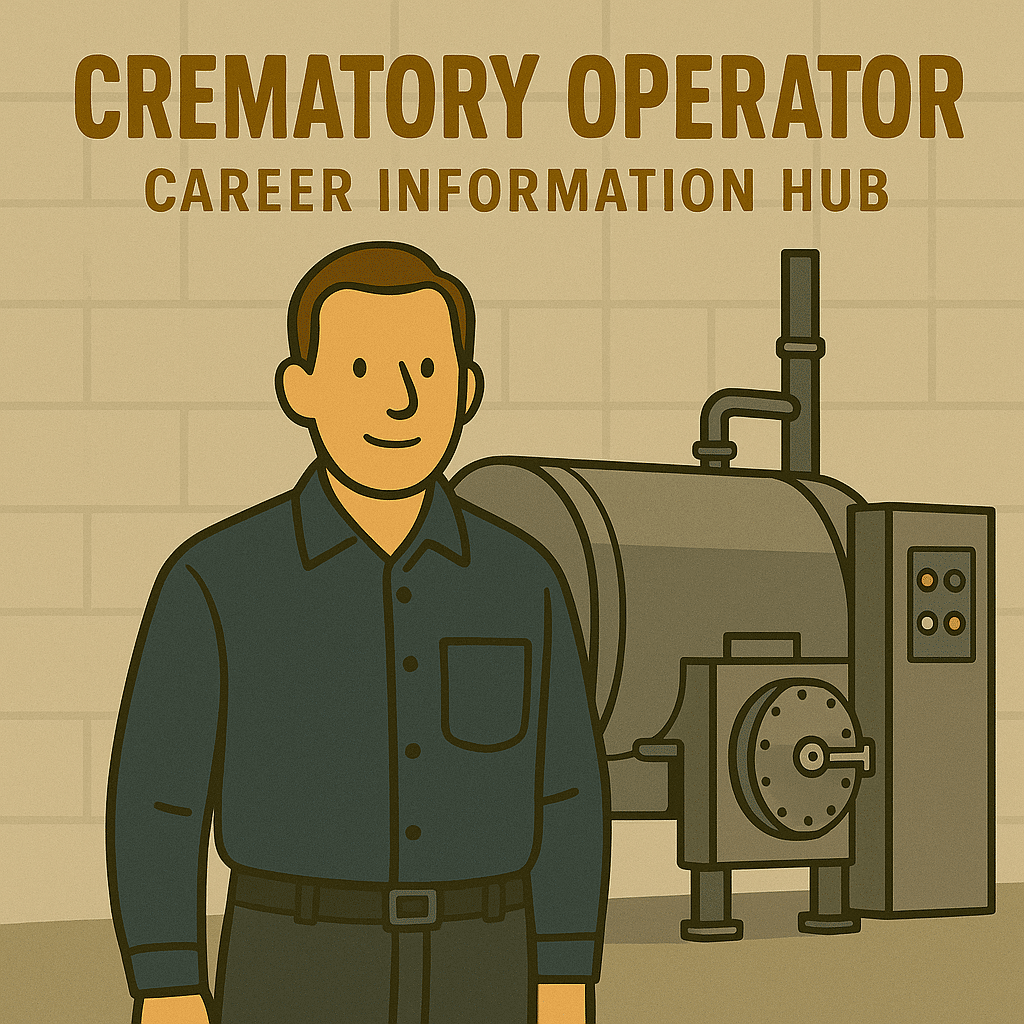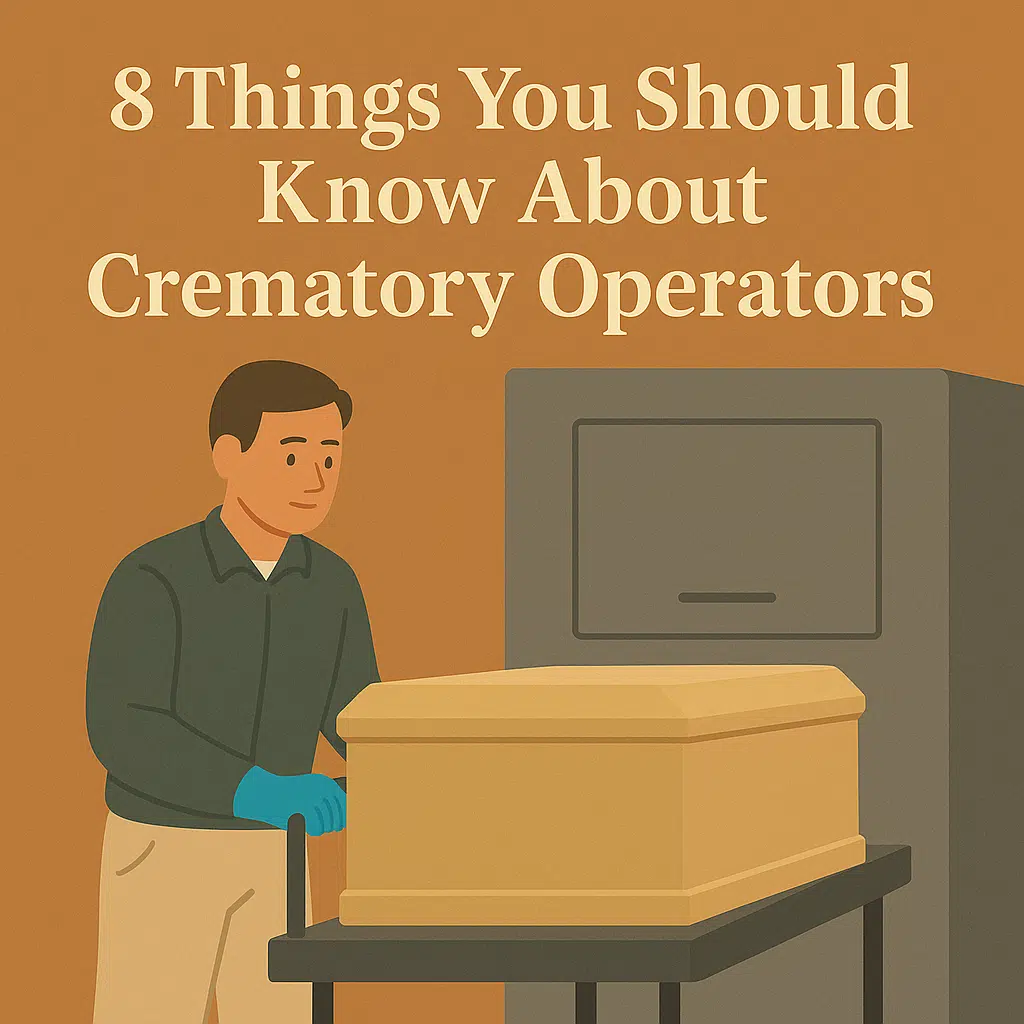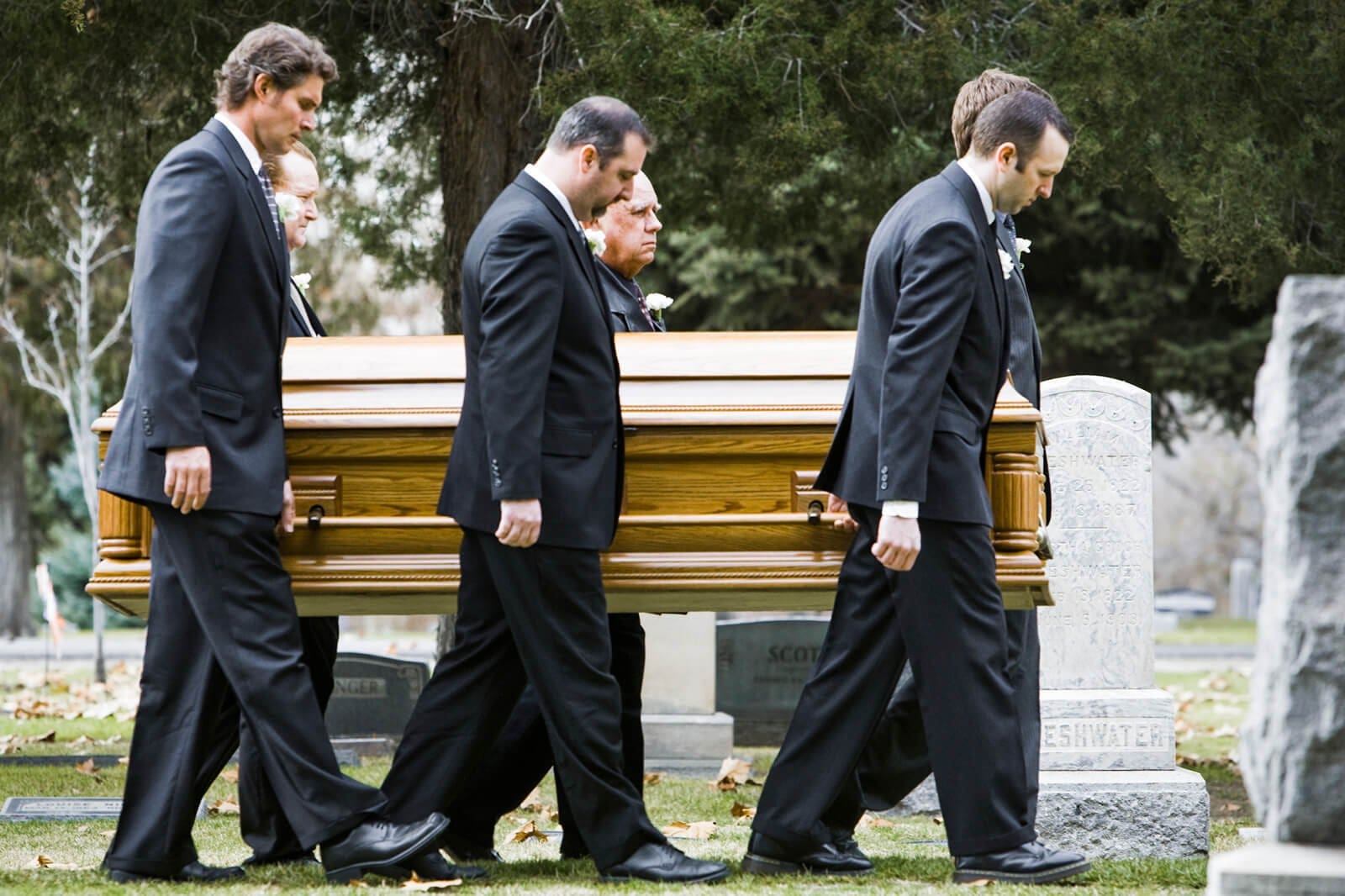The Professionals Behind The Ashes
The Crematory Operator Career Information Hub
Crematory operators manage the final step of honoring loved ones by operating and maintaining the cremation equipment. They ensure every cremation is conducted safely, respectfully, and according to legal and environmental standards. From preparing remains to handling ashes and keeping detailed records, these skilled professionals provide an essential service that supports families during difficult times. If you like working with technology and value precision and respect, this career offers a meaningful way to make a difference.

Key Things To Know
Crematory operators ensure the respectful and safe handling of human remains through cremation, combining technical skill with compassionate service.
-
It’s not just about running machinery: Operators manage complex equipment, monitor combustion, and maintain safety and legal compliance throughout the process.
-
Training and certification are important: Most states require licensure or certification, often provided through industry associations or technical programs.
-
Both traditional and emerging methods: Operators may work with flame cremation or eco-friendly alkaline hydrolysis, requiring knowledge of both.
-
Physical and technical skills matter: The job involves operating heavy machinery, lifting, and standing for long periods, alongside careful record keeping.
-
Regulations guide the work: Operators follow strict environmental, safety, and legal standards to protect communities and honor families.
-
Shift work and flexibility: Hours may include nights, weekends, or on-call duties depending on the employer’s needs.
-
Your role is vital: As the final steward of remains, crematory operators provide an essential service that blends technology and respect.
Why Choose This Career?
Choosing a career as a crematory operator means joining a vital, respectful profession that combines technology with service.
-
Steady demand: With cremation rates rising, skilled operators are increasingly needed.
-
Meaningful work: You provide an important service that helps families during difficult times.
-
Hands-on and technical: The job offers a balance of operating advanced equipment and maintaining safety.
-
Respect and dignity: You play a key role in honoring the deceased with care and professionalism.
-
Opportunities to grow: New technologies like alkaline hydrolysis offer chances to learn and adapt.
-
Flexible schedules: Many facilities offer varied hours that can fit different lifestyles.
-
Work behind the scenes: Most interactions are with funeral directors, allowing focused, specialized work.
Job Responsibilities
Crematory operators manage every aspect of the cremation process, ensuring safety, accuracy, and respect.
-
Operate cremation equipment: Safely control furnaces and alkaline hydrolysis systems.
-
Prepare remains: Follow protocols to ready bodies for cremation as instructed.
-
Maintain records: Accurately document all cremations, including permits and identification.
-
Monitor combustion: Adjust controls to ensure complete and efficient cremation.
-
Clean and maintain equipment: Perform routine upkeep to keep machinery in good working order.
-
Handle ashes respectfully: Process and prepare ashes for families or further disposition.
-
Ensure compliance: Follow all safety, environmental, and legal regulations.
-
Communicate professionally: Coordinate with funeral directors, regulatory agencies, and team members.
-
Stay informed: Keep up-to-date with industry best practices and new technologies.
Education and Certification Requirements
Most crematory operator positions require a combination of formal education, training, and certification to ensure safe and professional operation.
-
Basic education: A high school diploma or GED is typically required.
-
Licensing requirements: Many states or regions mandate a crematory operator license or certification.
-
Training programs: Certification programs are often offered by funeral industry associations or technical schools.
-
Safety and technical knowledge: Training includes combustion science, equipment operation, and environmental regulations.
-
Continuing education: Ongoing learning is necessary to maintain certification and keep up with evolving technologies.
-
On-the-job training: Many operators receive hands-on experience under supervision before working independently.
How To Get Started
To pursue a career as a crematory operator, follow these steps:
-
Check your state or local licensing requirements.
-
Obtain a high school diploma or equivalent.
-
Seek internships or entry-level positions at funeral homes or crematories.
-
Complete any required certification or licensing programs.
-
Gain experience with both traditional cremation equipment and alkaline hydrolysis technology.
-
Develop skills in safety, communication, and record-keeping.
-
Apply for crematory operator roles in your area.
Common Myths
Many misconceptions surround crematory operators and the cremation process. Let’s set the record straight.
-
Myth: Crematory operators just push buttons and wait.
Reality: Operators must actively monitor furnaces, adjust controls, and maintain equipment to ensure safety and compliance. -
Myth: Cremation is bad for the environment.
Reality: Modern crematories meet strict emissions standards, and alkaline hydrolysis offers a greener alternative. -
Myth: Anyone can run a crematory without training.
Reality: Most states require operators to have licenses or certifications and complete training. -
Myth: Crematory operators often interact directly with grieving families.
Reality: Communication is usually with funeral directors; operators generally work behind the scenes. -
Myth: Cremation eliminates all remains instantly.
Reality: Cremation reduces remains to bone fragments that must be processed into ashes. -
Myth: Alkaline hydrolysis is just a fad.
Reality: It is a proven, environmentally friendly technology that is gaining legal acceptance. -
Myth: Crematory operators do not need to understand chemistry or mechanics.
Reality: Operators need knowledge of combustion science, equipment mechanics, and safety protocols. -
Myth: Cremation facilities operate 24/7 with constant activity.
Reality: Crematories have scheduled operations and downtime for maintenance and cleaning.
What Makes Someone A Good Fit
Successful crematory operators share certain qualities that help them perform their duties with care and professionalism.
-
Detail-oriented: Precision in monitoring equipment and maintaining records is essential.
-
Comfortable with machinery: Operators work closely with complex cremation and hydrolysis equipment.
-
Respectful and professional: Handling human remains requires dignity and empathy.
-
Physically capable: The job often involves lifting and standing for extended periods.
-
Safety conscious: Following strict protocols protects both workers and the environment.
-
Good communication skills: Coordinating with funeral directors and regulatory bodies is part of the role.
-
Flexible: Willingness to work varied shifts or be on call when needed.
Articles
Frequently Asked Questions
Have questions about becoming a crematory operator or the cremation process? Here are answers to some of the most common questions.
Disclaimer: The information provided on this website and by Buried in Work is for general informational purposes only and should not be considered legal advice. Please consult with a qualified attorney or subject matter expert for advice specific to your situation.




